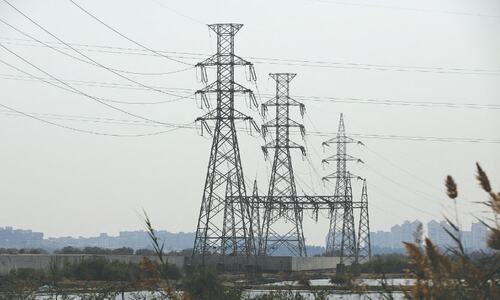KARACHI: A top executive told Reuters that Hub Power Co Ltd (Hubco), the nation’s largest private utility, anticipates a decline in power usage this year as a result of rising tariffs and slow industrial activity.
According to research from energy think tank Ember, power demand in Pakistan fell by over a sixth last year, and a dip in 2024 would be the first time that annual electricity use has decreased consecutively in 16 years.
On the fringes of the Energy Summit 2024 conference in Karachi, Hubco Chief Financial Officer Muhammad Saqib told Reuters, “There is demand destruction on the industry side because the industry is not growing.”
“People definitely save on fuel trying to conserve energy because of the significant increases in consumer tariffs,” Saqib remarked.
The International Monetary Fund’s bailout of Pakistan last year, which led to an increase in retail prices, particularly fuel and power costs, is still having an effect on households in the lower and middle classes.
Although they have decreased recently, power outages are still common in Pakistan, particularly in remote rural areas, where grid problems, fuel import delays, and a lack of hard money are the main causes.
Saqib stated that he anticipates inefficient power supply habits, such as the usage of pricey and more polluting furnace oil despite the availability of less expensive alternatives like natural gas, to persist if long-overdue improvements to Pakistan’s electrical infrastructure are not completed.
Given Pakistan’s large LNG (liquefied natural gas) supply capacity, there is no need to use any furnace oil. However, we also have to utilize furnace oil this summer due to grid restrictions,” he stated.
Pakistan has been attempting to increase the amount of natural gas-fired electricity produced and reduce the amount of furnace oil used for power generation.
Grid constraints, according to Saqib, will probably reduce the amount of coal imported and the amount of coal-fired power generated.
If Hubco’s power plants were operating at full capacity, they would need 3.5 million tonnes of imported coal annually; however, the business does not anticipate importing more than 750,000 tonnes this year, he said.
“Those imported coal plants are sometimes less expensive than LNG-fired power, but there is not enough capacity in the transmission lines to actually use them.” remarked Saqib.








